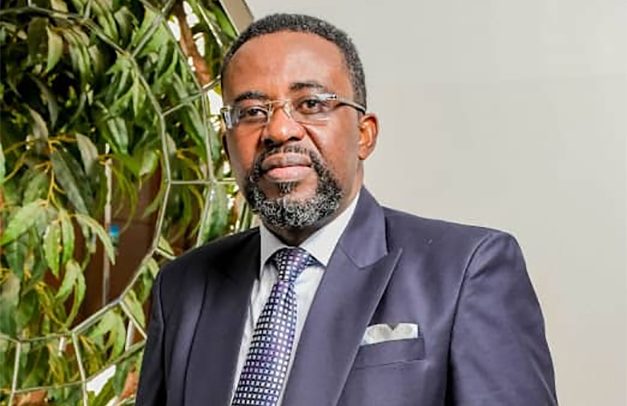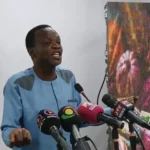Importers do not have to carry dollars in Accra to pay for their imports, banks are expected to fund that for them through their Nostro Accounts, Governor of the Bank of Ghana (BoG), Dr Johnson Asiama, has said.
Dr Asiama said the banks are expected to fund that for the importers.
Nostro Accounts are accounts that a bank holds with a foreign bank in the currency of the country where the funds are held.
He assured that the Bank of Ghana will be monitoring the Nostro accounts of the Banks to ensure they are in a good place to support importers and exporters with foreign currencies for their trade.
Dr Johnson Asiama said that the bank received reports of the inability of some importers to access dollars from commercial banks for their operations.
However, the central bank moved to investigate this development. The investigations by the BoG pointed out that some of those importers did not have the appropriate documentation, which was what was delaying it, he said.
Nonetheless, he says the BoG is currently working on the complaints received about the shortage of dollars.
Asked for his response to concerns that importers aren’t getting dollars from the commercial banks to enable them to carry out their business activities, during the 125th Monetary Policy Committee (MPC) press conference in Accra on Wednesday, July 30, Dr Asiama said, “We are supporting the market regularly, almost every day. We support the market because, as you know, certain inflows that were going to the banks directly, especially in the area of mining, these flows accrue to us directly now. And we also purchase from the mining firms, so it is just natural that we intend to support the market. So we do not expect a shortage of dollars at the banks.”
He added “There have been instances like that [ shortage of dollars], but we moved to investigate only to find that some of those importers did not have the appropriate documentation, which was what was delaying it.
“That said, we are working on it. Banks finance trade using their Nostro accounts. Nostro account is the bank account that the banks hold out there, it is out of which they pay for imports.
“You don’t have to carry US dollars in Accra to pay for your imports. Banks are expected to fund that for you. Now, what we have seen is that certain inflows appear to have been reduced, especially remittances. Remittances inflows appear to have reduced since April; we are investigating that thoroughly. Only yesterday, we released a notice to banks, PRSPs, MTOs and the like. We want to monitor these flows so that they accrue to the system. We are going to be very active on that front. We are following up with certain data requirements from all those players in the remittance space. Once we do that, the inflows will begin to come in.
“We are also moving ahead to monitor the Nostro balances of banks from now on, we will be monitoring transactions in the Nostro balances of banks, all in an attempt to make sure that we don’t have an offshore rig going on and that all; Ghaha’s foreign exchange earned from abroad is nmade avilable is made available to the system to fund our import and economic activities, that should help to stabilise the exchange rate going forward. ”
Dr Asiama also used the press conference to address concerns about the licenses of the banks that had collapsed during the clean-up exercise.
He said that he is not under pressure to restore licenses of the banks that collapsed during the banking sector cleanup.
He stated that he cannot unilaterally decide to restore the licenses.
Asked whether he is under pressure, he answered, “Not at all.”
He added, “Remembe,r the resolution for the framework is working. I came into office to find that a lot of progress had been made. Some cases are in court, some cases are undergoing certain forms of settlement, and so the process is on, and we will follow on on the process in that regard.
“The issue of what to do. It depends, for example, if a court reaches a decision and instructs us to go in a particular way, the board of the Bank of Ghaha will look at that. But from where I sit, there is no pressure on me to restore any such unilaterally.”
The question was asked on the back of a campaign promise made by President John Dramani Mahama when he was in opposition ahead of the 2024 general elections.
It is recalled that while delivering his formal acceptance speech at the University of Development Studies (UDS) on Monday, May 15, 2024 after his victory as flagbearer of the National Democratic Congress (NDC) on Saturday, May 13, 2024 Mr Mahama said “we shall promote robust, local participation in our banking and financial, telecommunication, tourism, mining and agric and manufacturing sectors to grow our economy and create sustainable employment for our youths.
“We will restore indigenous Ghanaian investments in the finance and banking sector and we will create a tier banking system that will serve various segments of the market.
“We will give the opportunity to experience banking hands who were laid off needlessly to secure their careers once more and move away from the menial jobs that they were compelled to take.
“As far as practicable the banking licenses that were unjustly canceled by this government will be restored.”
Some local banks collapsed when the central bank revised the minimum paid-up capital for existing banks and new entrants from GHS120 million to GHS400 million in 2018.
According to the regulator, this was to test the viability of the banks. The banks that were unable to meet this new requirement were either merged or collapsed.
Some nine local banks, 23 savings & loans companies, 347 microfinance institutions, 39 finance houses and 53 fund management companies closed down during the exercise.
UniBank, The Sovereign Bank, The Beige Bank, Premium Bank, The Royal Bank, Heritage Bank, Construction Bank, UT Bank, Capital Bank all collapsed. Some analysts and observers criticised the BoG and the Finance Ministry over the collapse of the banks because, in their view, these banks could have been saved to continue employing Ghanaians.




